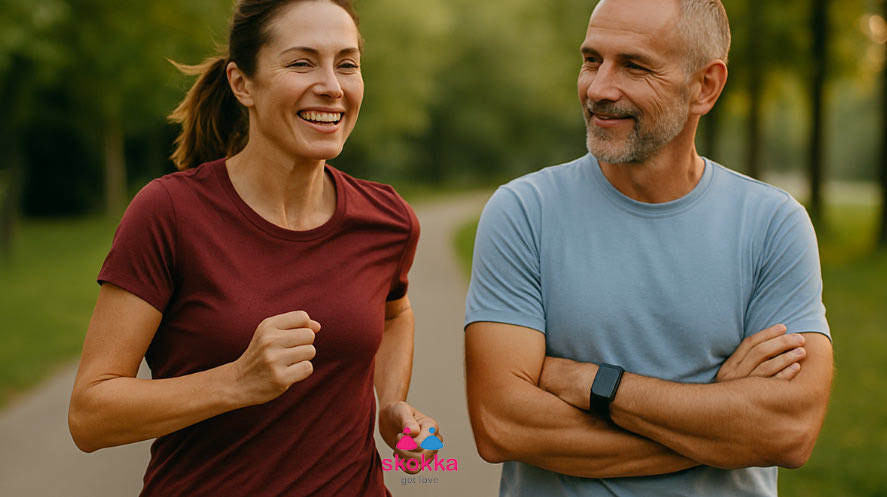Maintaining balance between body and mind is essential for professionals in all fields — especially for those who face constant physical and emotional demands, such as escorts. It is no coincidence that people working in services where appearance and presence play a significant role place such great value on well-being. Physical exercise, often linked only to aesthetics, has a much deeper role: it is a crucial ally in preventing so-called “silent” diseases.
These conditions, as their name suggests, act almost unnoticed, often developing for years without clear symptoms. By the time they are finally diagnosed, they may already have caused significant damage to the body. This is why regular exercise stands out as a powerful, accessible, and natural tool for protecting the body, even when it does not “warn” that something is wrong.
Prevention accessible to everyone
Unlike medications or costly treatments, physical exercise can be practised by almost anyone, regardless of age or financial status. Walks in nature, home workouts, dancing, cycling, or simple daily stretches are enough to activate the body and deliver long-term benefits.
Today, there are many platforms such as skokka.gr showing that taking care of the body is not exclusive to athletes or health professionals. Even individuals working in less conventional sectors understand the importance of physical activity as a way to maintain vitality and resilience over time.
What are “silent” diseases?
“Silent” diseases are those that progress without obvious signs, making early diagnosis difficult. Among the most common are hypertension, type 2 diabetes, high cholesterol, osteoporosis, fatty liver disease, and certain forms of cancer. In many cases, patients discover their condition only through preventive check-ups or after a sudden complication, such as a heart attack or stroke.
The difficulty in identifying these illnesses early highlights the importance of prevention. This is where physical exercise comes in: it acts on multiple levels, boosting metabolism, hormonal balance, and the cardiovascular system, while significantly reducing risk factors.
How exercise helps in prevention
Physical exercise activates the body’s proper functioning. It helps regulate glucose levels, improves blood circulation, stabilises blood pressure, strengthens bones and muscles, and contributes to mental balance. By keeping the body moving, we create an internal environment less favourable to the development of diseases that could otherwise remain invisible for years.
Moreover, the habit of exercising is often linked with other healthy behaviours, such as a balanced diet, better sleep quality, and avoiding addictions like smoking or excessive use of digital devices. Together, these factors form a natural “shield” of protection against hidden threats to the body.
An investment in the future
“Silent” diseases do not warn us when they are approaching. For this reason, prevention must begin as early as possible. Incorporating exercise into daily life is a conscious choice of care for the future. It is not simply about avoiding problems: it is about gaining energy, confidence, and quality of life.
Professionals who advertise on sites such as Skokka Heraklion, who work in direct contact with people, know how much physical and mental condition affects performance and self-esteem. Similarly, anyone who wants to live more fully can benefit substantially from adopting healthy habits early on.
Mental health and “silent” effects
Another often-overlooked aspect is the direct link between mental health and silent diseases. Regular exercise releases neurotransmitters such as endorphins, serotonin, and dopamine — substances that help control anxiety, stress, and even symptoms of depression.
Chronic stress, for example, is one of the main causes of hypertension and metabolic disorders. Physical exercise works as a regulatory mechanism, offering both body and mind a “release valve” from accumulated tension. By strengthening psychological resilience, we also strengthen the immune system and other vital bodily functions.
Consistency makes the difference
There is no need to become an athlete or spend hours at the gym. The secret lies in consistency. Daily movement, even light, is enough to bring positive results. The ideal is to find an activity that brings pleasure — something sustainable for months and years, without feeling like an obligation.
It is advisable to consult a health professional before starting any new routine, especially if there is a family history of chronic diseases. However, in most cases, a simple daily walk, short dance sessions, or even breathing exercises and stretches can prove highly beneficial.


